Unlike most of the world, including Scandanavian neighbours Norway, Denmark and Finland, Sweden has refused to lock down the country. Instead, it’s trying a different approach to beat COVID-19 – trusting its people to voluntarily practice social distancing and develop herd immunity. But why has Sweden adopted this approach and is it working
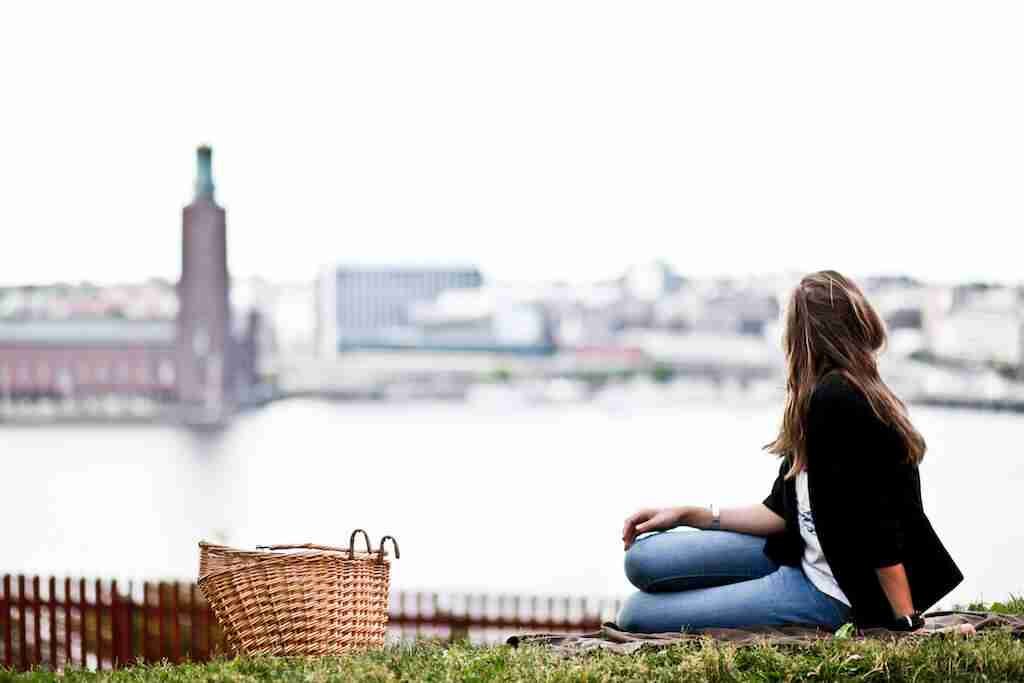
Lars Svanerud zips up his ski jacket, tightens the laces of the ski boots, wears the snow goggles before picking up his ski poles and helmet. Although spring has quietly sprung in the southern part of Sweden, it still feels like winter in the northernmost tip of Dalarna, where the mountains stretch out endlessly in front of you and thick layers of snow blankets the landscape like sand dunes in the desert.
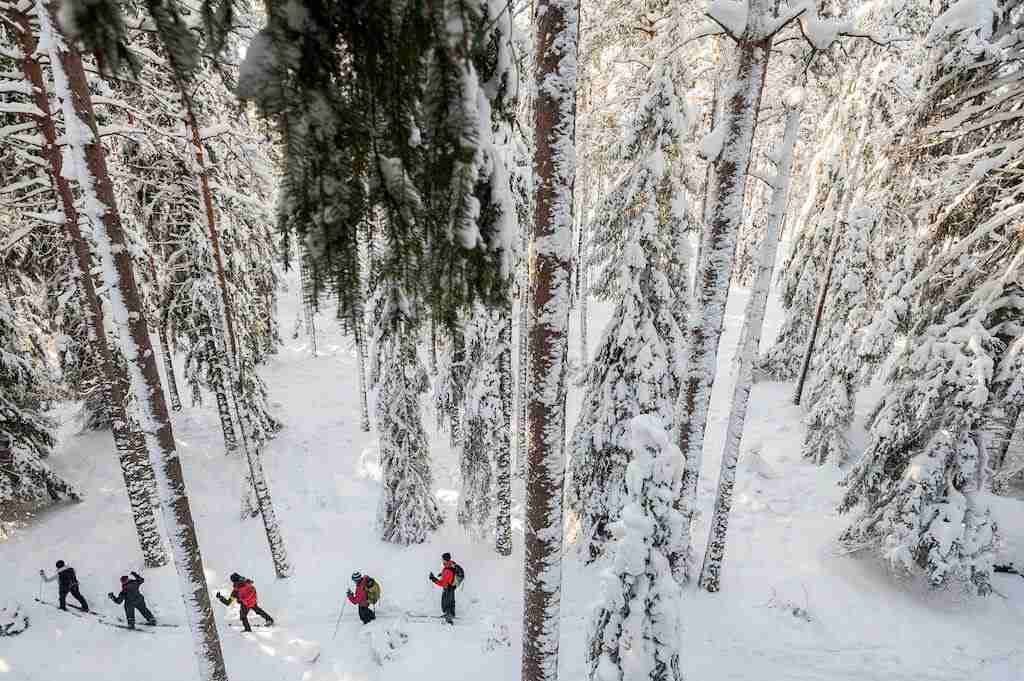
This might be the last snowfall of the season and Lars Svanerud, a guide and sport chef at STF Grövelsjön Mountain station, doesn’t want to miss the opportunity. So, along with his pack, he is back in the wilderness of Grövelsjön.
At the same time, Anna in New York, Boris in London, Carlos in Milan, Mufasa in Cape town, Chang in Singapore, Ken in Tokyo, Andy in New Zealand and many more like them around the globe are spending most of their time holed up at home under orders from their governments. Every single country is fighting the same enemy – the invisible Novel Corona Virus. While much of the world adopted the strict lockdown strategy, imposing severe restrictions on movement and penalties for those who transgress, Sweden defied the global norm by taking a more relaxed approach to battling Coronavirus.


Contrary to their global counterparts, Swedes still enjoy the springtime sun in cafes and nightlife in bars. Country’s borders are open to European Union nationals, as are offices, malls, gyms, playgrounds and schools. Swedish authorities are trusting their citizens to act responsibly and have, therefore put minimal restrictions. People are encouraged to wash hands frequently, work from home if they can, and self-isolate if sick or aged 70 or older. Despite a severe threat of coronavirus spreading at a rapid pace, people still have the freedom to go outdoors or stay indoors as long as they maintain social-distancing. Only on March 29th did Sweden banned gatherings of more than 50.
However, this strategy did not come out of thin air. The no-lockdown approach is deep-rooted in the Swedish culture where the real power resides in people taking responsibility themselves. Swedish Government is relying on the voluntary behaviour of the people. The state encourages and recommends the right actions but never compels them to follow.
As per the Swedish authorities, the country is on track to reach herd immunity from coronavirus after it bucked the trend and refused to lock down or close its borders. Dr Anders Tegnell, its chief epidemiologist, revealed in a CNBC interview Tuesday (April 21) that the country was seeing the effect of “herd immunity” in the capital. He said
The infection rate was slowing down in Stockholm, which has a population of about 2.4 million while describing the rest of Sweden’s coronavirus situation as stable.
While the efficacy of the decision is yet to be seen, locals are seen to be taking the responsibility seriously. My local friend, Kicki Lind from Gothenberg, echoes the same sentiment,
We still go to restaurants, bars, shops, hiking trails but we do take care of social distancing. So much so that couples have stopped kissing each other. No big parties are thrown. We try to avoid public places… trams and trains almost run empty. We are taking the recommendations of social distancing seriously and trying our best to flatten the curve. After all, it’s in our blood to take our rights and responsibilities quite sincerely.

Kicki’s words about responsibility and rights took me back to the days I spent in the country attending the Adventure Travel Summit Sweden 2019. Last year in September, I hiked through a nature reserve between Norway and Sweden that the locals call “Gränslandet”.

Along with Lars Svanerud, my local guide, I trudged forward on the road less county, far from the roar of civilisation, where only the sounds of wind and water interrupt the infinite silence. An area where you can spend weeks without seeing another human being. But the area also holds much more accessible mountain landscapes, where hundreds of people come walking every day. And the statement about untouched wilderness needs qualifying. People have lived here for thousands of years. This is the southernmost region of Scandinavia where the Sami people herd reindeers without leaving any footprints. The Sami are one of the world’s indigenous peoples inhabiting the northern parts of present Sweden, Norway, Finland and Russia.
On this trip, I got a rare chance to live in the shoes of Sami, thanks to my local Sami Hosts – Helena and Peter Anderson — who run Renbiten, an adventure and culture tourism company at Idre Sameby on Dalarna county of Sweden.


We hike through the mountains Båthusberget and Djupsjöberget, traversing through alpine lakes, old pine trees, tall grassland, wild orchids and the wolf lichen unique to the area. Lars shares the secrets of the nature reserve as I painstakingly try to navigate through boulders and puddles. Weather plays hide n seek with us – bringing heavy showers at times and clearing up a few times to give us a sneak peek of the mind-blowingly beauty of the area we are in. The mist-shrouded Båthusberget looks devilish and a spine-chilling wind blowing at a speed of 60 km/hr makes it impossible to capture the beauty of the area with our cameras.


As we walk down to the base of the mountain, Lars shares a fascinating insight into his country. A fact that now when seen in retrospect explains the current approach of the Swedish Government to tackle coved-19.
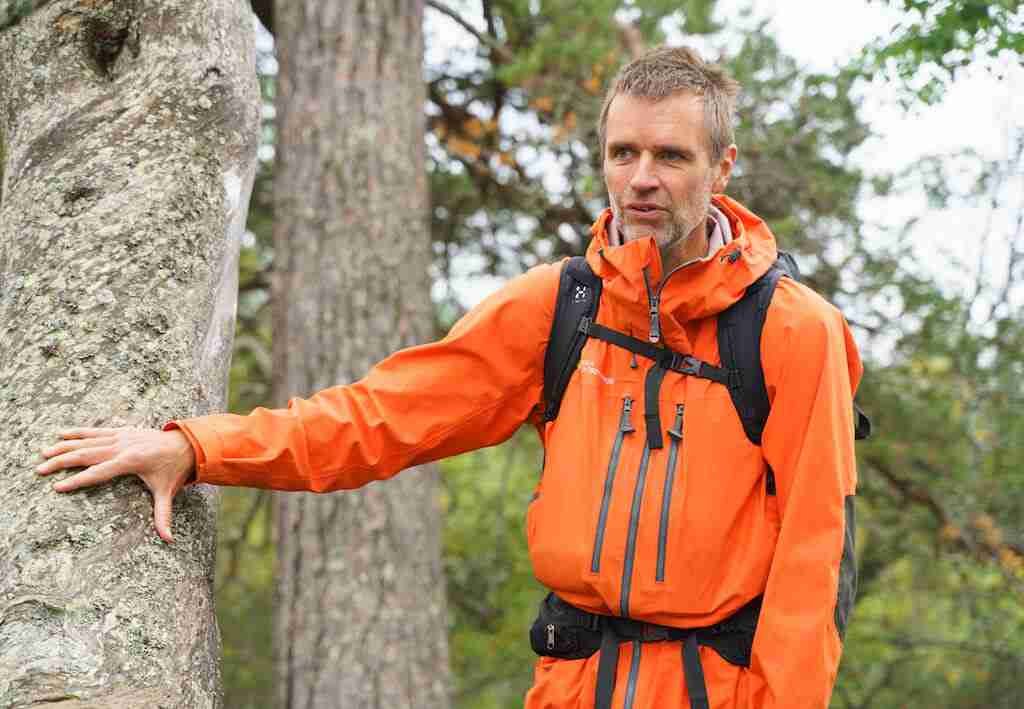
He says,
Sweden has no Eiffel Tower. No pyramids. Not even Taj Mahal. But we have something special – the freedom to roam. It’s a right protected by the law, that allows us to sleep and eat pretty much everywhere – all completely free of charge. The only thing we have to pay for is respect for nature and the animals living there.
Freedom and responsibility are two essential virtues of every Swede, which they never take for granted. This reliance on people taking responsibility themselves is what the Swedish Government is punting their hopes on in a battle against COVID-19. The next two weeks will determine whether the Swedish system got it right. Until then, you enjoy the armchair travel to the Nordic nation as they explore the great outdoors.

Do you agree Sweden did the right thing by avoiding a strict lockdown and using milder containment strategies to beat the Covid-19?

Please share your feedback in the below-given comments section.
Further reading – Published in
The Hindu Businessline: Sweden, a zero-trash heaven
The Hindu Businessline: A day with Lovis the reindeer
The Tribune: Transforming trash into treasure, the Swedish way
The Tribune: Of Sami and reindeer, and their way of life
Sakal Times: Hiking with the reindeer
Inspired? Pin these to your Pinterest boards
Disclaimer
I was invited as a hosted media to attend the Adventure Travel Summit Sweden 2019 by the Visit Sweden This pre-adventure trip was organised by Renbiten as part of my visit. All the views expressed above are based on my personal experiences in the country during my visit. Images used are either shot by me or provided by the Tourism Board. Please do not copy anything without written permission.

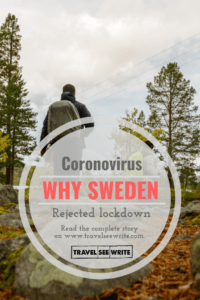
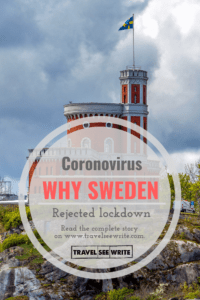



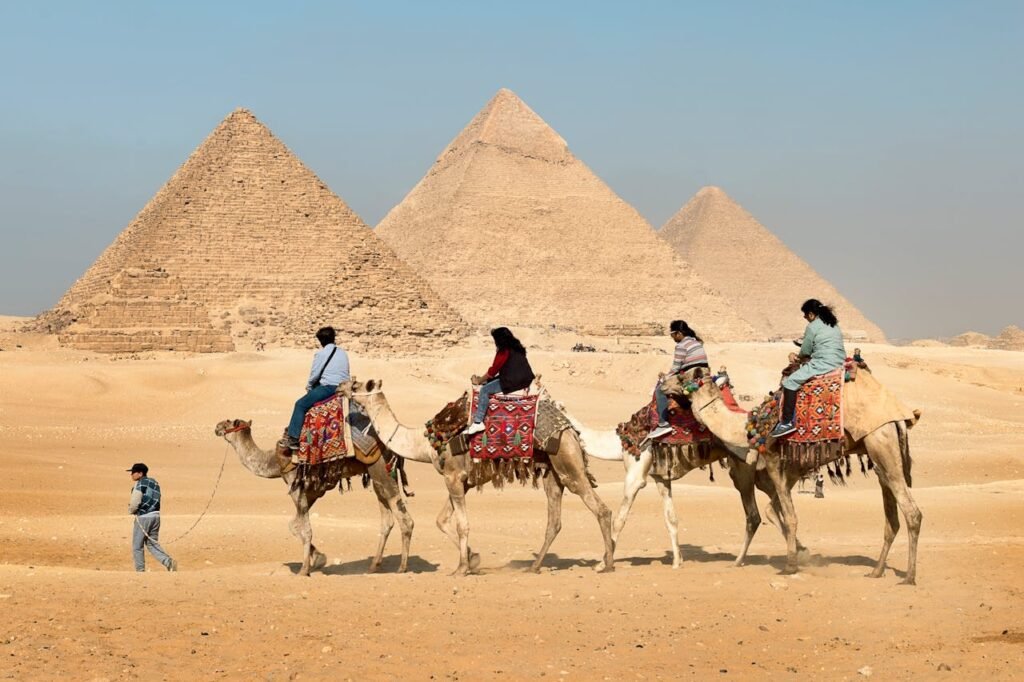
Hey , a very nice article. Gives a totally innovative approach on how this pandemic may be handled considering how the rest of the world is using Lockdown procedures to get over this deadly virus. I really like your articles and different aspects you cover in your social cause journalism.Keep it up.
Very nice blog dear Archu, do hope you keep busy entertaining and knowledge sharing worthy lacs of your followers like that….keep exploring.
“respect for nature and the animals living there”. This is something that should be understood by everyone. I want to go back to the older days where no technologies are taking over lives. Everyone use to stay home with family, having 1 television, no cellphone only telegram. With each passing year, the life of a person is around 55-60 years.
Thank you for the great content. Keep writing.